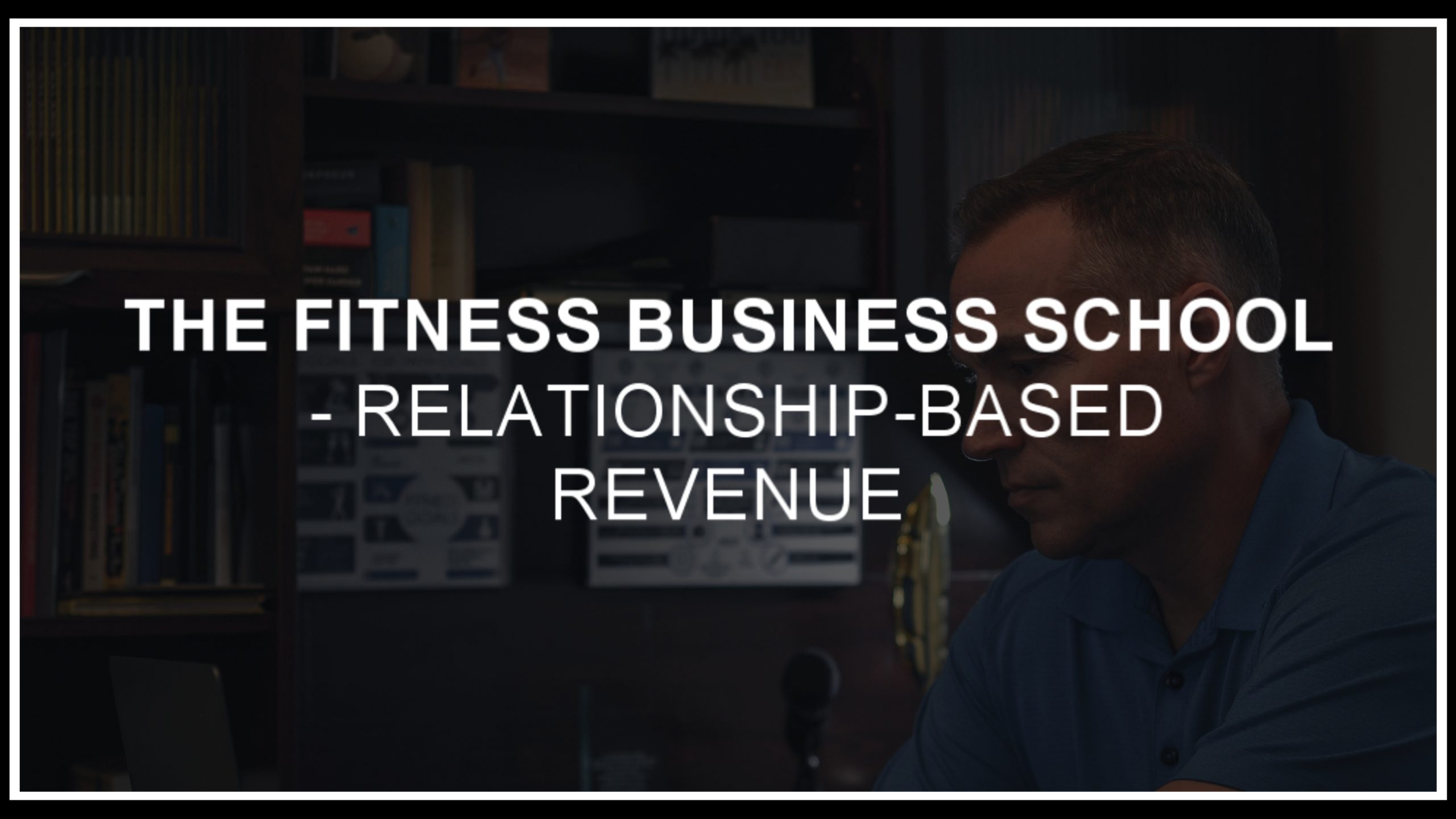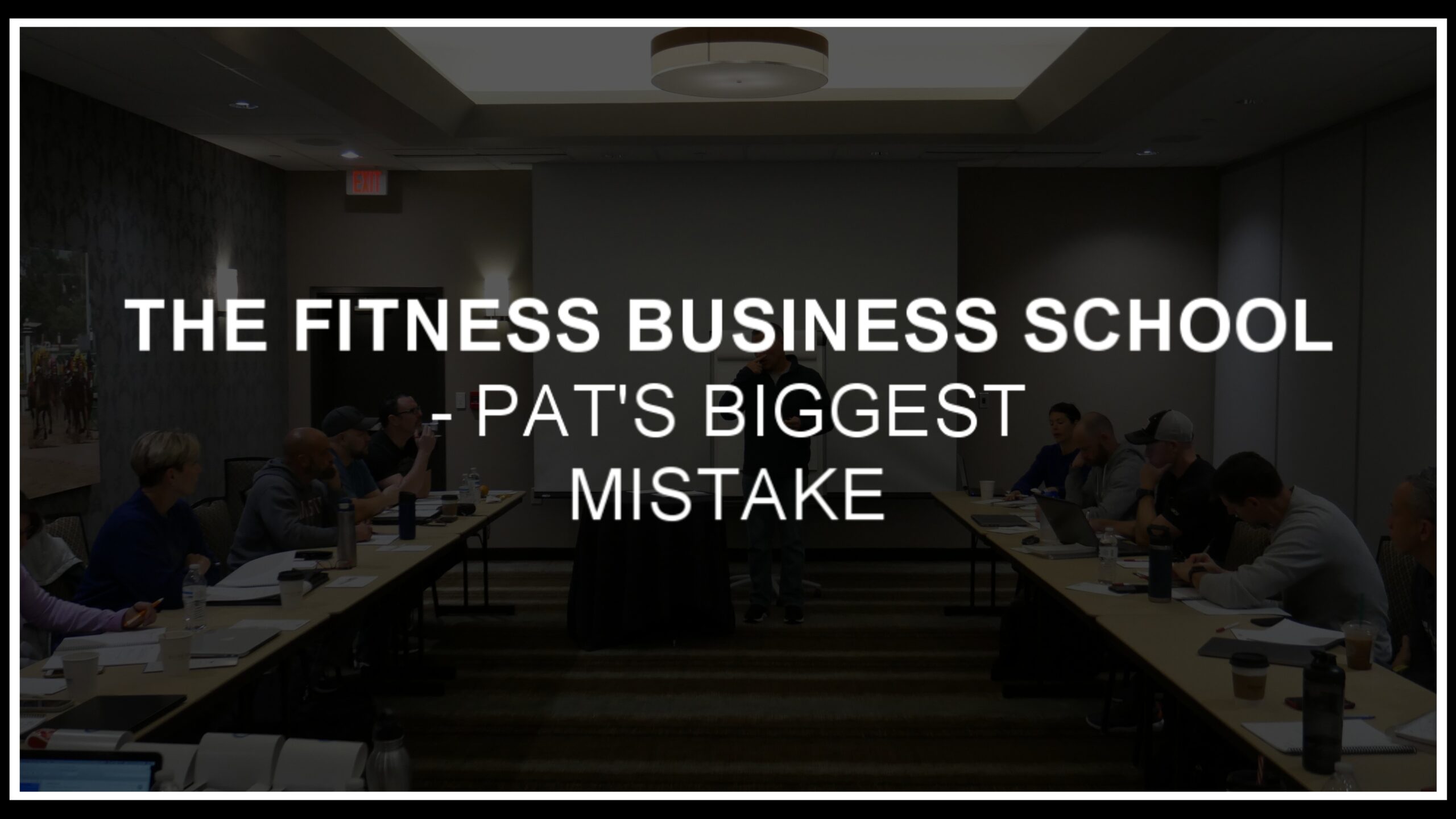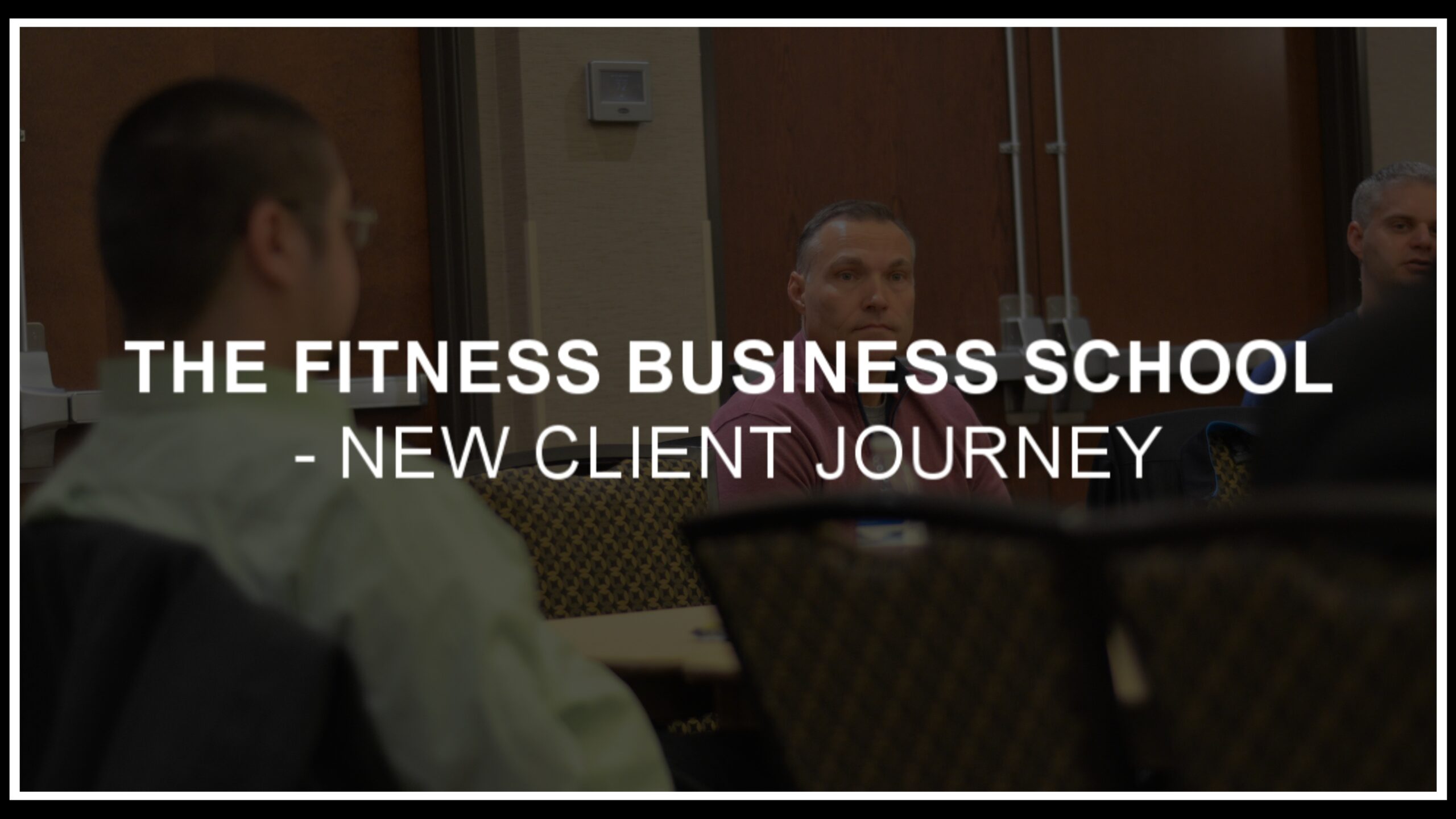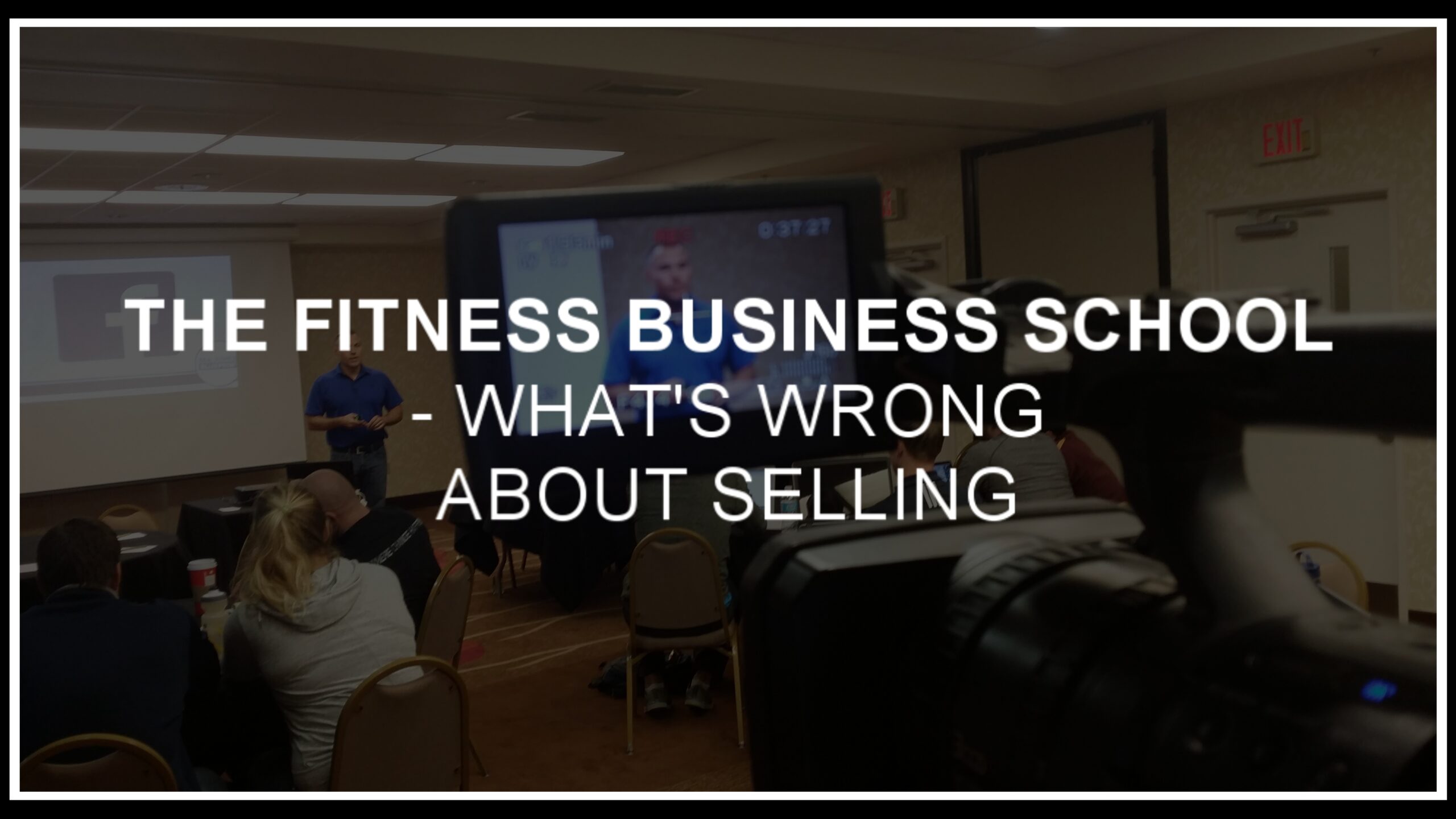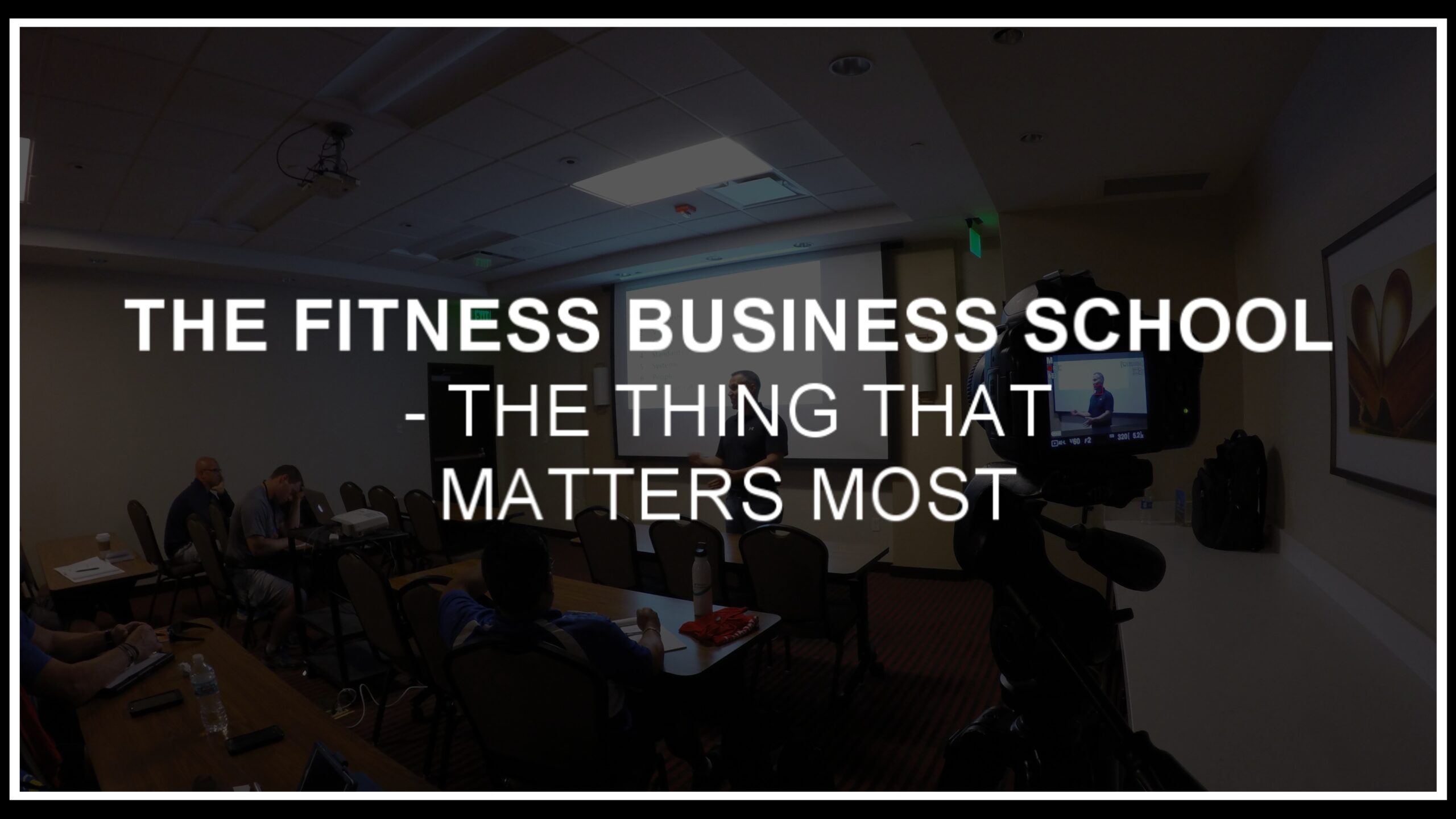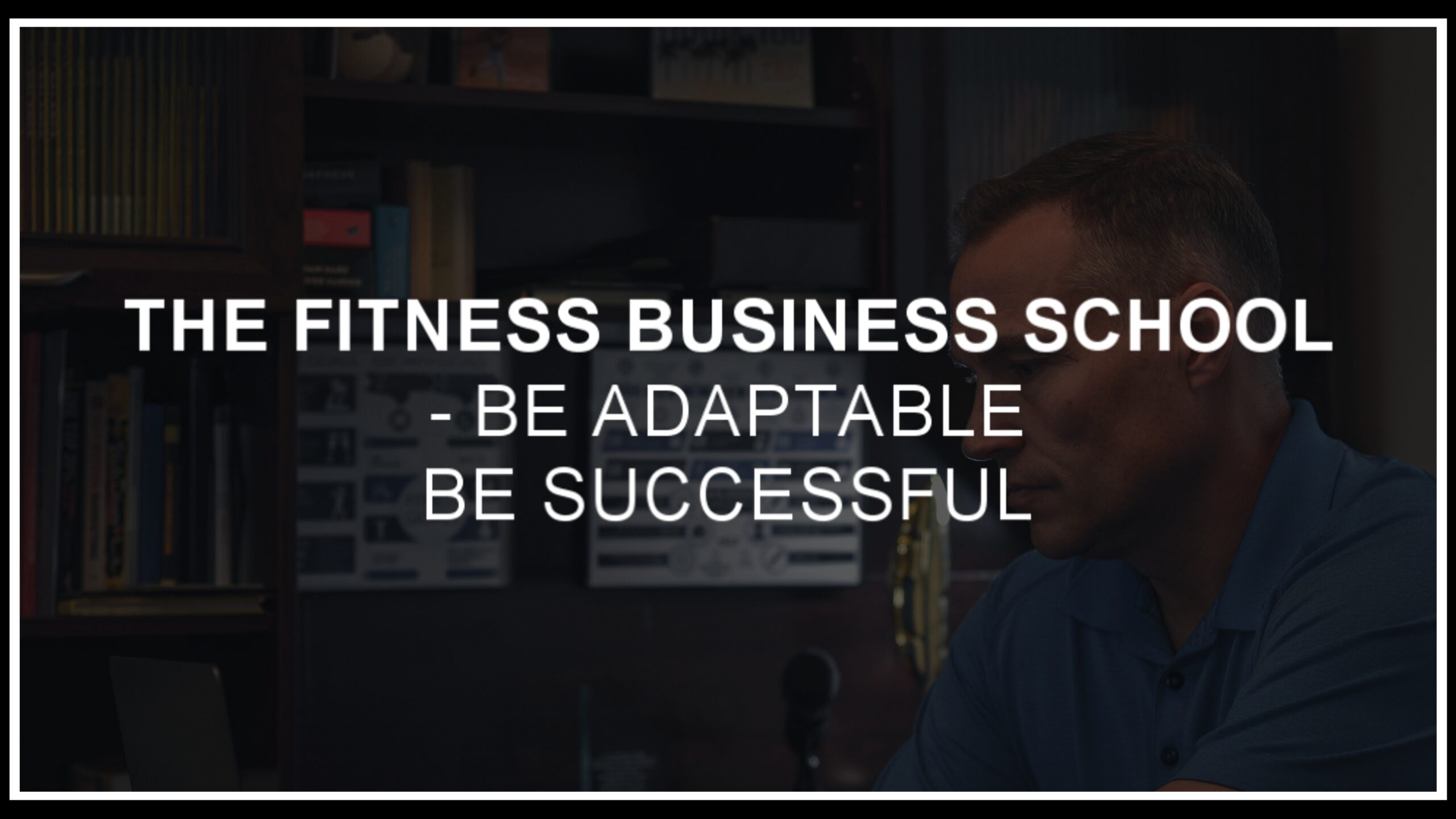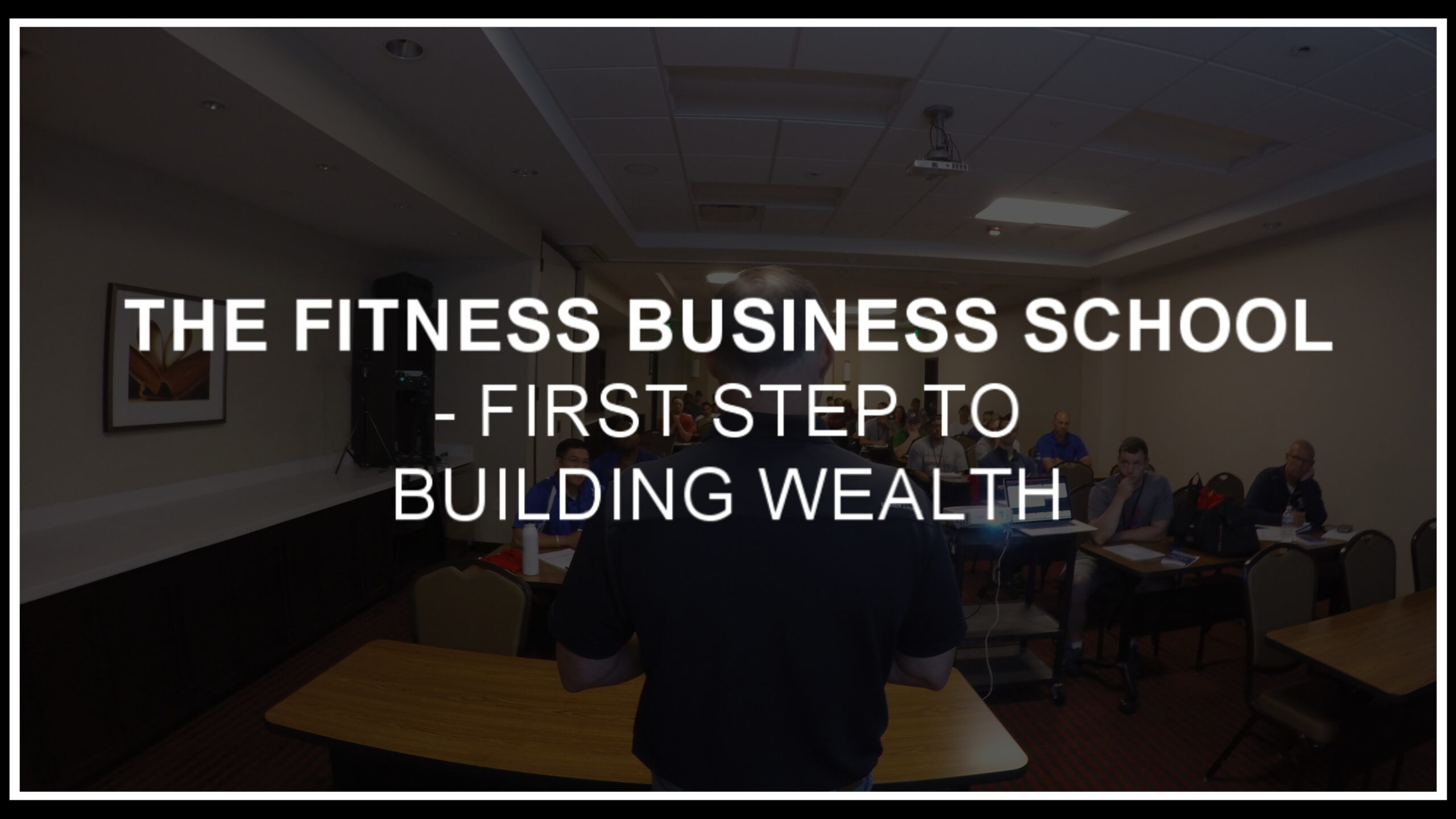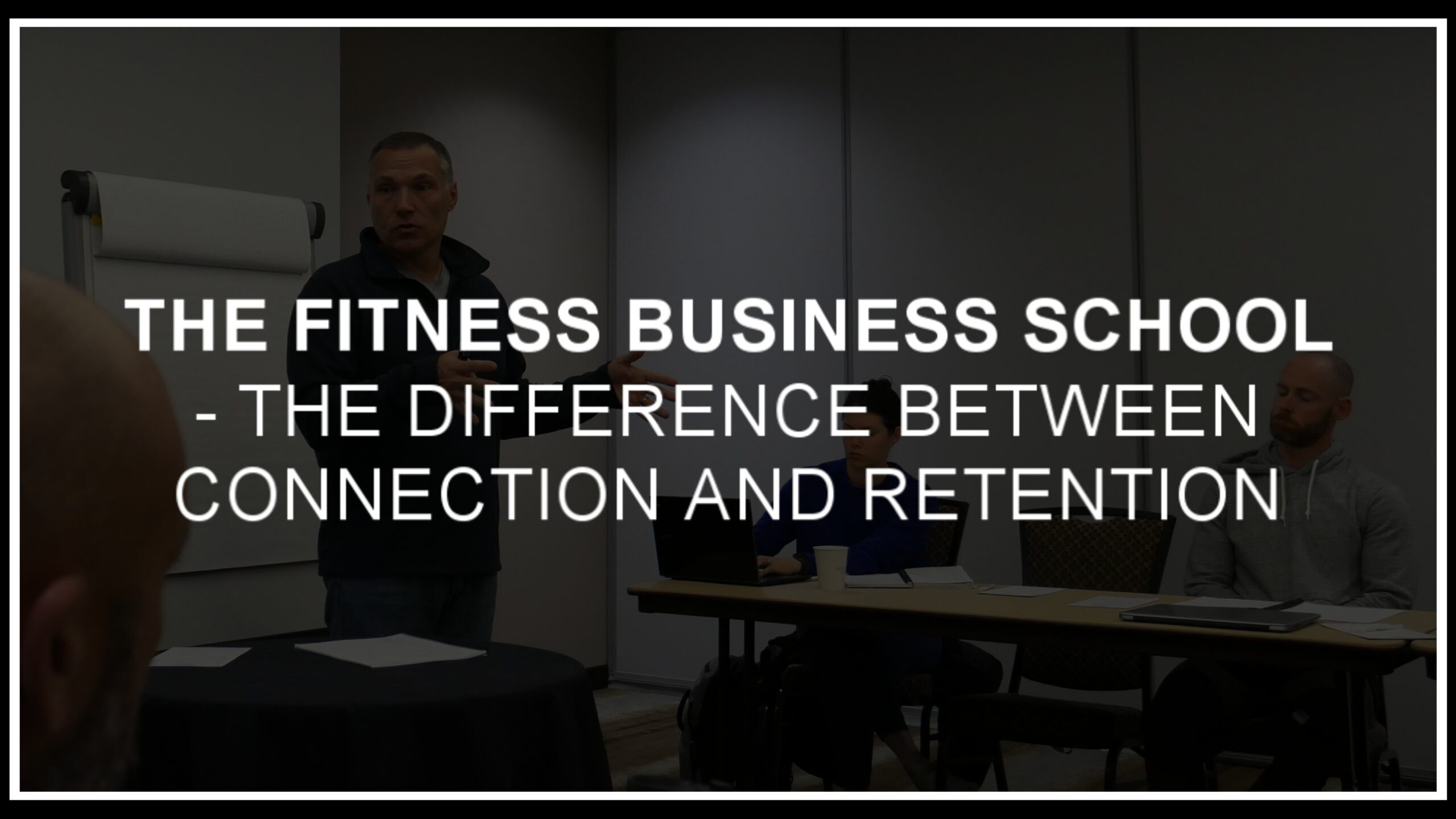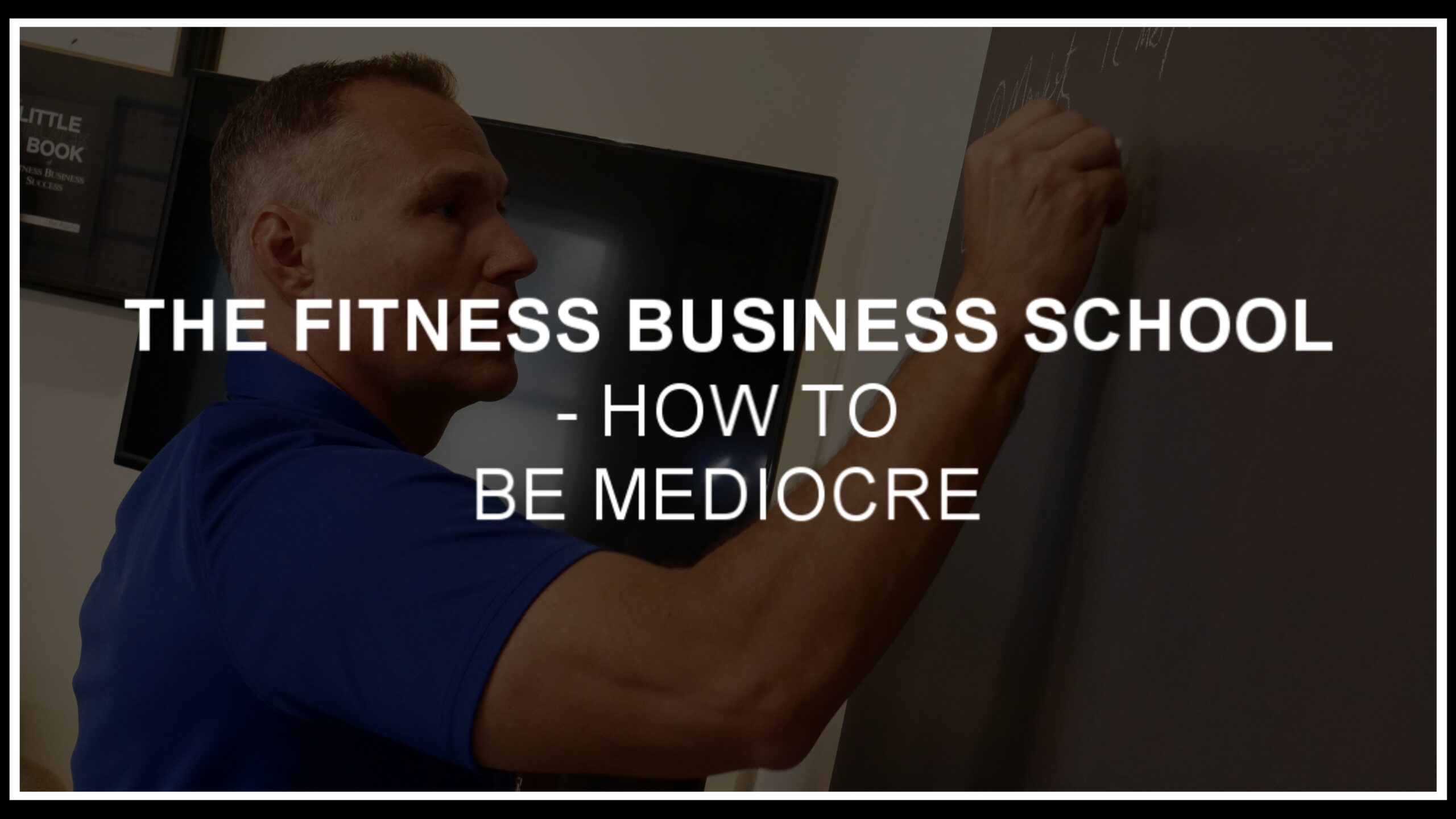Show Notes
- In a small town, word travels fast
- Use that mentality in your business
- You have to treat people well if you want them to return
- So much of your revenue is tied to personal relationships
- Pat’s been subscription-based for years and its been built on relationships
- People fear the unknown, make sure they’re always welcome back
- Find joy in being a helpful part of clients’ lives
- If you are, they will stay a client, people want to feel important, so do that
- Marketing is easy to people who have relationships
P.S. – 6-Weeks of Coaching…Free.
Get a surge of new clients and revenue over the next 6 Weeks with ZERO FEE and no obligation to continue?
If you’re a current business owner who wants to add 50K or more in annual revenue over the next 12 month, you can Test Drive our coaching program for 6 Weeks with no fee or even an obligation to continue as a way to demonstrate how we can help you grow your business.
No strings attached. No obligation. You get our best coaching & tools…and hopefully, you’ll love it enough that you want to keep working together.
Would you be interested in discussing?
If so, email me here with ‘interested’ in subject line and we’ll set up a chat.
Full Transcript
Hey, Pat Rigsby here and in this episode, I wanna talk with you about relationship based revenue and how it’s a different way to look at growing your business. Let’s get to It.
Welcome to the fitness business school podcast. The show for fitness business owners who want to grow their income, increase their end impact and improve their lifestyle. Be sure to listen to the end of this episode, because we have a brand new special offer exclusive for listeners. So stay tuned.
I was lucky enough to grow up in a relatively small town, a town of about 20,000 people. And there’s so many perks to that. So many benefits that you know, I will always be grateful for that opportunity. And one of the, the kind of hidden benefits that, you know, I, I look back now and recognize that I, that I probably didn’t understand for for many, many years was how you know, in, in a small town, like if you have a small business and you treat people well, you know, word travels fast, but if you treat people poorly word travels even faster. And I, I think I just kind of took that away with me and understood that repeat business is something that, that you have to have in a small town because you don’t have a never ending kind of string of people to potentially market, to, to potentially attract. You need to earn people’s continual business. And my dad owned, owned and still owns a small auto repair business that in, in many ways in hindsight probably bears a lot of resemblance to a lot of the businesses of the clients that I’ve coached. You know, like 4,000 square feet he’s had anywhere from like one to five employees.
He’s you know, it’s a service based business. He had no experience with, with being a business owner, no education in business getting into it. But I think that he, he probably understood this idea that you’ve got to treat people well, if you want them to come back. And, you know, just from an observational standpoint, him having, you know, the same customers for decades and you know, kind of recognizing that and seeing the, the way that I might respond to a small business and say, well, Hey, if they didn’t treat me well, I’m probably not going back. It, it helped me understand this idea that our, our, our revenue is largely tied to the relationships that we create. Sure. You may be able to create this kind of revolving door where you bring new people in. Well, the other people walk out the back door because they didn’t have a great experience, but I’ve always felt like it’s a, it’s a lot smarter to build relationships that last, and now I’ve had over the years, 43 different recurring revenue programs, everything from under $10 a month subscriptions to franchises where people signed up for five year terms, paying a royalty after a franchise fee and everything in between. And I think a lot of times people in our industry have gravitated to this subscription model that I take great pride in being kind of at the forefront of, I, I remember going to a couple of the, the industry leaders at the time and saying, Hey, Hey, I’m selling personal training on a subscription model with 12 month commitments in Kentucky. And they’re like, well, you can’t do that. You have to sell packages or series. And you know, I, I would say that history has indicated that yes, you can do it. In fact, every successful franchise model that I’ve seen does do it in the, the training world now.
But there, as with most things, it’s brought a lot of good to businesses. It’s created a lot of stability, but it also has had a little bit of collateral damage. And what I mean by that is, is you know, people in, in our line of work say, okay, well, I expect this person to stay with me with an unbroken subscription year after year. And we, we, aren’t sensitive to the fact that people’s lives. Aren’t just the, this flat line of consistency. You know, if they have kids, those kids go through different stages of, you know, obligations and, you know, and, and what the parent is gonna be involved in at each each varied stage job change, interests change. People may go on different sorts of vacations, or they may travel for work, or, you know, people, you know, they get sick or maybe they’re taking care of loved ones or something like that. And the, this kind of up and down that, that I think is interwoven in all of our lives is something that we, as the business owner seem to almost be oblivious to or uninterested in. And we think, well, if you cancel, then that’s a slight against me.
And I take that personally, and you should be staying here. And, and, and we, we almost view it in an antagonistic way instead of thinking of this as no, I want to create a relationship with this person that would make them feel incredibly welcome to come back it, to make them feel like, okay, you know what? I, I love my clients. I want to see them succeed. And whenever they’re ready to come back, whenever this makes sense for them to, to come in and, and this be part of their life, I want to welcome them with open arms. And I think if we were to adopt that approach more for frequently, we would have so much more success because let’s face it. If somebody’s been in your facility, they’re already comfortable. They know people, they, they have a level of comfort in how things work and people don’t like the unknown. They fear the unknown and fear change in many cases. So it’s always easier for somebody to come back if we’ve created that bridge for them to come back. But all too often, you know, we get a little bit snippy or kind of passive aggressive when somebody leaves, or we, we, we act as if it it’s, you know, just a, a transactional thing, instead of saying, Hey, you know what, here’s a workout.
You can do it, how that you can do anytime, anywhere. I wanna make sure that you stay on track, even though I know you’re busy, even though I know your schedule’s changed if you need anything, shoot me a text, gimme a call, email me, you know, and, and kind of maintaining the role of coach in their life, even if they aren’t coming to see you. And fortunately, I think most of the time I’ve done pretty well with that. I don’t know that I would ever say that that’s universally true with me. I’m sure I’ve you know, been oblivious or blind to mistakes that I’ve made along the way in that case. But I know on average, it’s worked up pretty well. And the, you know, because of that, I, I have some people in coaching programs. Now that first got involved with me in coaching programs, as far as back as 2006 and 2007, I’ve had people kind of come and go coaching programs throughout that, throughout that window of time.
And if you think about most of the people offer, bring some sort of service in that area. Probably half of them were in elementary school when, when these people were my clients and you know, sure it’s not been unbroken. These, these guys in over a 15 year span, maybe they’re an active client, 10, 11, 12 years, but man, to have the type of professional relationship with somebody where they stay with you and still see you in that way and are willing to come back and work with you, you know, 10 or 12 years out of 15, that’s incredible. And frankly, that’s been the, the, the maybe unsung joy of my professional life to be able to build those kind of relationships and see, you know, these people evolve, see their, you know, their, their families grow up, see their professional life change, change, and evolve, see them put themselves in a, in a better position. And, and I think that if you don’t have that kind of relationship with somebody, if you don’t treat them that way, yeah. You may keep somebody for as long as their term is, but the minute that term expires, they’re gonna walk out the door the minute they, they leave, you know, that they’re never coming back.
So, you know, if you’d be happier, keeping people for 12 months or 18 months and it’s unbroken, but you’re okay with that being the end of the road, then, you know, maybe ignore some of these, these suggestions that I’m making. But if you want to build relationships that last, and if you want to see people come back in and not just be, Hey, I’m gonna run a reactivation campaign where I discount something and use that as a driver. But really just being generally interested in this person’s well-being in success, that being the driver, it, it could add literally hundreds of thousands of dollars to your business revenue over time. It can make marketing so much easier because the, the cost of acquisition isn’t really there for these folks anymore. You know, you’ve already a acquired them as a client originally, but it also makes business more fun because it’s not a revolving door and it’s not transactional. It it’s this place where you know, that you’re having an impact on these people’s lives. And that gets to be your legacy. And, you know, that’s that that’s a wonderful, additional bonus to, you’re not having that relationship based revenue.
Thanks for listening to this episode of The Fitness Business School. Before you go, I have a quick announcement. When I first connect with a fitness business owners, they almost always asked me, how can I get more clients or make more money? Well, I have an exclusive offer for you, and it’s gonna help you do just that. As a listener of this show, you can test drive our business growth accelerator coaching program for FREE.
BGA is a one of a kind program where you get done-for-you marketing tools and a level of coaching that is unmatched in our industry to help you attract more qualified prospects and convert them into paying clients, ultimately making you more revenue and personal income.
Imagine having every tool template ads, script you need all proven to convert in, ready to use. Plus you have access to over 10 weekly live video coaching sessions to help you with everything from dialing in your ads, to mastering your mindset. You get all of this and more when you joined BGA and to help you succeed, I’m going to do something I’ve never done before. I’m going to let you test drive BGA at zero cost.
If it delivers for you in the way that I expect – it more than it pays for itself, and you’ll probably want to stay. If not, you’re out nothing and have a library of proven tools and resources to keep.
To take advantage of this special offer. Just email me [email protected] and put test drive in the subject line, and I’ll get you all the details.


